
Yoav Gallant and Benny Gantz say they are against Netanyahu’s decision, believing that it would lead to mistakes due to the circumventing of the security establishment.
According to unconfirmed reports by Israeli Channel 13, the prime minister of the Israeli occupation Benjamin Netanyahu has yielded to the demands of Police Minister Itamar Ben-Gvir to limit the access of Muslim worshippers from the occupied territories in 1948 to al-Aqsa Mosque during the Muslim holy month of Ramadan.
According to reports, the Shin Bet has warned that such a measure will undoubtedly exacerbate tensions, especially any move that applies to Palestinians from ’48 occupied territories and those who have a “permanent residence”, knowing that the Israeli occupation police favor such a move.
The channel reported that Security Minister Yoav Gallant and War Cabinet Minister Benny Gantz opposed Netanyahu’s decision, believing it would lead to mistakes due to the circumventing of the security establishment.
“This is not unity and not a cabinet. This is not how we work,” Gantz allegedly stated.
Ramadan is set to commence in early March this year, and the holy month is synonymous with several occasions that Muslims celebrate. Recently, the occupation has severely restricted the entry of Palestinians to one of the holiest sites, al-Aqsa Mosque, in occupied al-Quds. The measure comes hand in hand with increased systematic oppression of Palestinians in the occupied territory, including wide-scale detention campaigns and assassinations against Palestinians in the West Bank.
Israeli military and intelligence authorities have expressed concern regarding the upcoming month, recommending that concerned authorities ease measures against Palestinians in the occupied West Bank and al-Quds.
Moving into March, the Israeli aggression on the Gaza Strip would have neared 150 days, exceeding five months of confrontations, siege, and all-out ethnic cleansing of the Palestinian people. Israeli authorities are aware of the explosive situation that might further escalate in Ramadan if the war on the Gaza Strip is not stopped. On the other hand, Palestinian Resistance factions will look to activate other fronts to impose their demands of a ceasefire, prisoner exchange, and a massive rebuilding project of the Strip.
In May 2021, Israeli restrictions paired with assaults against Palestinians in al-Quds and worshippers in al-Aqsa Mosque led to daily confrontations between worshippers and Israeli occupation forces in the religious site’s courtyards. In juxtaposition with rocket attacks launched by the Palestinian Resistance from the Gaza Strip, the scene highlighted a strong scene of unity between the two separated Palestinian territories.
Related News
- PIJ: Al-Aqsa restrictions aggression against Muslim nation
- US requests Rafah invasion pause during Ramadan, fears escalation
Such wide-scale actions in the West Bank and al-Quds have constituted a fear that haunts Israeli officials, as the month of Ramadan is believed to trigger greater mobilization among Palestinians.
Israeli media: Captives exchange deal to mature by Ramadan
Israeli newspaper Haaretz quoted informed sources Friday as saying that the detainees-captives deal will mature around the upcoming month of Ramadan, adding that “Israel” will make use of the upcoming weeks to implement its plans before that time.
While the sources maintained that communications are still ongoing, they said it was still too early to determine if both parties will bring the deal into effect or halt it when the time comes.
Israeli officials are having a hard time predicting how Benjamin Netanyahu will act at “the moment of truth” or if will blow up the deal with Hamas for “political, security and personal reasons,” the sources explained.
Palestinian sources disclosed to Al Mayadeen on Wednesday “Israel’s” response to the Resistance’s ceasefire proposal, which involves a three-stage plan with requests for several concessions but does not include the complete withdrawal of Israeli troops.
The first stage, according to the sources, will comprise a 35-day-long ceasefire and will have the possibility of being extended for an additional seven days.
The second stage could last 30 days, the sources added, noting that the third stage does not have a specified timeframe.
Concerning the clause on troop withdrawal, the sources stated that “Israel” requested substituting the word “populated” with “heavily populated” to indicate that the troops would remain stationed in uninhabited areas.
They further said that “Israel” rectified a clause about rehabilitating hospitals but not rebuilding them.
Moreover, they agreed to suspend flights over Gaza for only six hours each day.
Related Stories
- Israeli media: Captives exchange deal to mature by Ramadan
- US requests Rafah invasion pause during Ramadan, fears escalation
- Israeli intelligence fears ‘explosive’ month of Ramadan in West Bank
- British charities and companies funding the genocidal occupation forces in Gaza
- Ukraine Crushingly Defeated at ICJ
- The hands of the regional Armageddon clock strike eleven
- Sayyed Nasrallah: Lebanese front contingent on Gaza; all options open
- Seriously injured Palestinians left for dead: French doctors
- In 136 days, ‘Israel’ detained 7,100 Palestinians in West Bank
- UN experts ‘appalled’ by rights violations against Palestinian women
- NATO prepares for possible Trump comeback, looks for plan B: WaPo
Operation Al Aqsa Flood
Filed under: "Israel", Palestine, Palestinian people | Tagged: 1948 Palestinians, Benny Gantz, Defense Minister Yoav Gallant, Dome of the Rock and Al-Aqsa mosque, Israeli Brutal Aggression, Israeli Occupation, Israeli Occupation Force IOF, Itamar Ben Gvir, Occupied W Bank, Ramadan Shallah | Comments Off on Netanyahu yields to Ben-Gvir, limits Muslims in al-Aqsa during Ramadan






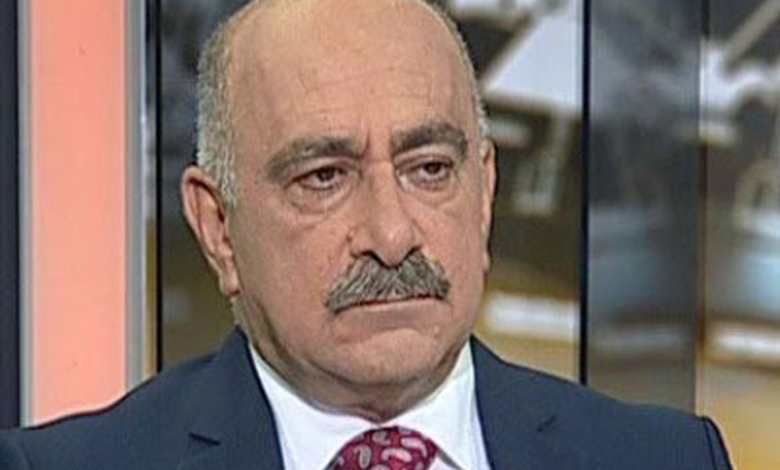
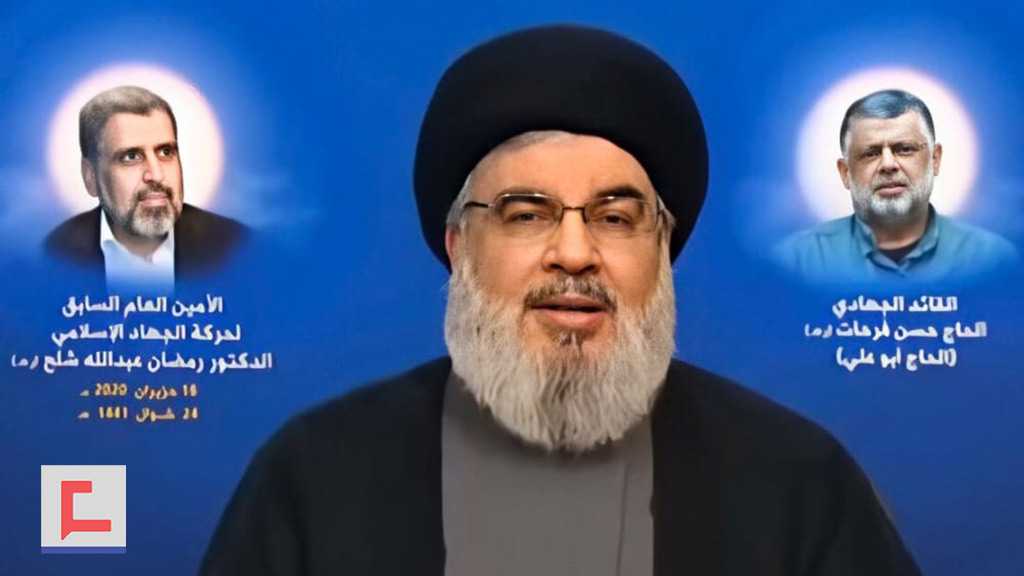
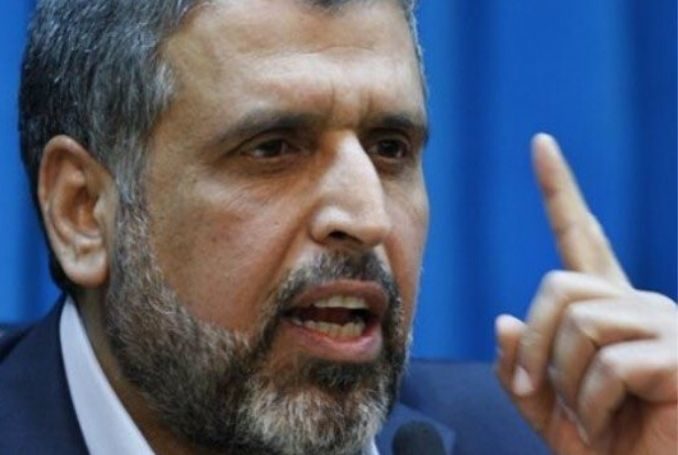

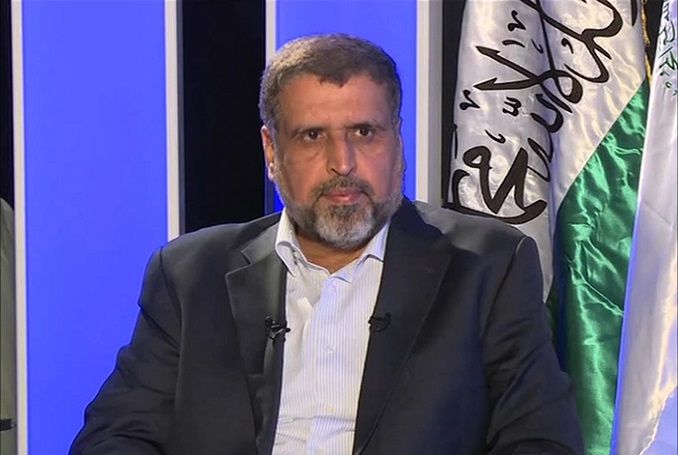


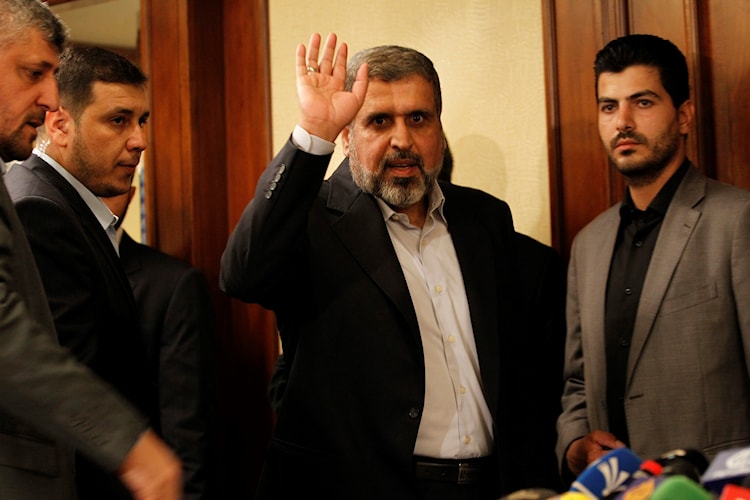





















 The leader of the Palestinian Islamic Jihad Movement, Ramadan Abdullah Shallah, asserted that the Zionist enemy started Gaza war and that the resistance surprised it with displaying its military readiness to encounter the aggression.
The leader of the Palestinian Islamic Jihad Movement, Ramadan Abdullah Shallah, asserted that the Zionist enemy started Gaza war and that the resistance surprised it with displaying its military readiness to encounter the aggression.